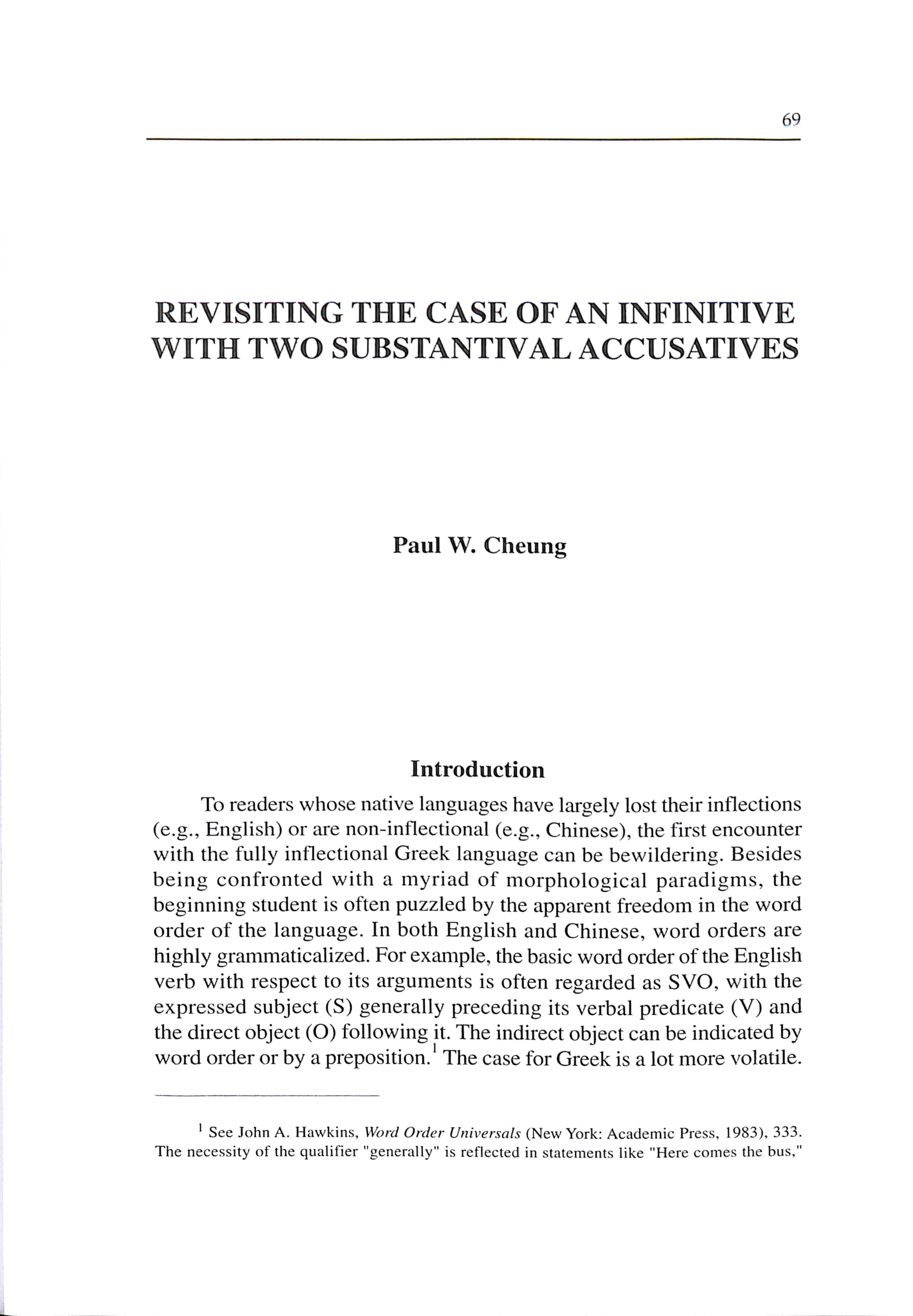Revisiting The Case of An Infinitive with Two Substantival Accusatives/Paul W. Cheung
Paul W. Cheung 張雲開
撮要
本文嘗試透過新約希臘文中一個文法含混的結構,研究澄清含混的方法。一般學者都指出得出一個語言的大體字詞次序原則的重要性,但字詞次序原則並不是澄清含混的最佳方法,因為這一類原則通常都是建基於一些更基本的、用來澄清含混的語言溝通因素和做法,以致致力研究後者能為語言運作了解帶來更大的裨益,在文章結論中亦提及一些有關語言樣本的統計問題,指出語言學者雖然使用統計學來分析語言樣本,卻未曾對樣本的獨立性作出廣泛和深入的探討,導致一些結論的可靠性容易受到質疑。
ABSTRACT
This paper focuses on the question of the syntactic parsing of ambiguous linguistic situations. The case examined is the Greek infinitive constructed with two substantival accusatives in the New Testament. It is found that while more often than not the subject would precede the object/predicate in the construction, what tells them apart is not the existence of a word-order rule. Instead, more fundamental linguistic processes are at work which allow a reader/hearer to discern the respective grammatical roles of the two accusatives. The conclusion is that while a plausible word-order pattern may be established, linguistic investigation would fare a lot better by focusing more on those fundamental linguistic processes than on the instituting of a word-order rule. A few remarks are also made regarding the statistical nature of linguistic samples.
原載於《教牧期刊》第8期及《建道學刊》第13期合刊(1999年12月),頁69-101。
作者簡介
張雲開
聖經系副教授
最新文章
新手牧者研究計劃(三):新手牧者的身心靈狀態 / 盧慧儀
2025 年 11 月 19 日
個體與關係:滕近輝思想中「深化」的靈性觀 / 倪步曉
2025 年 11 月 18 日
香港九龍塘基督教中華宣道會之起源和發展史/陳智衡
2025 年 10 月 20 日
编辑精选
[電子書]困境與抉擇:「建道研究中心30週年誌慶」跨學科研討會論文集/廖炳堂、倪步曉主編
2025 年 1 月 2 日
從梧州到長洲:建道神學院125年的挑戰與恩典 / 陳智衡
2023 年 10 月 1 日
微小教會的見證/高銘謙
2023 年 6 月 1 日







